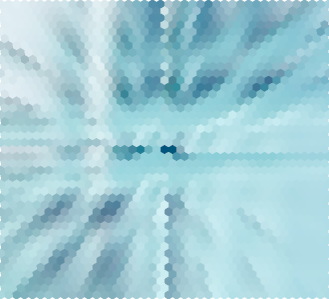Sound: Advanced Topics II


A lot of impressive music apps now exist as html projects. We'll be looking at a few of them, but primarily we will be exploring how to create our own browser-based music apps. This will definitely be a learn-as-we-go semester, as neither Mary nor I have had much (any!) experience doing this kind of development. After doing a bit of exploring, we discovered the Tone.js package for doing web audio work. It's a meta-set of the basic web audio API, using the Javascript language within an html (web document) framework. If you haven't dealt with any of these things before, don't be frightened: we will not be assuming any heavy prior knowledge of this stuff in the class, Hey, we're the Music Department! We just want to make cool sounds! Seriously, though, a bit of programming experience will be helpful but not essential. Like I said above, we're also going to be learning about all this as the term unfolds.
Because of our relative lack of engagement with web audio, we plan to bring in a number of 'special guest stars' throughout the term, including Yotam Mann, the creator of Tone.js (Yotam was also a participant in this class several years ago). I've tentatively scheduled people on our course syllabus but the timing of some of our guests will be flexible. The amount of time we've alloted to various aspects of web audio may also be stretched or compressed based on what we'll need to cover in the class. Check the syllabus often to see what's in store (plus we'll be linking in all our code examples for every class on the syllabus). To be honest, we really have no idea if we can even cover one-tenth of the materials we have planned to cover, but hey, this is Columbia! Go Lions!
If anything, we'll learn a bit more about 'doing' music on the
web, and hopefully we can even generate a set of interesting
apps by the end of the term. The really fun part is that the
code we develop should run on many platforms, so we shouldn't have
any OSX vs. Windows vs. Android vs. iOS issues. You'll be able
to use whatever works best for you. Hopefully.
Collected here are links to software and APIs that we will be using in class:
Although I said earlier that this should all be happily cross-platform, there are indeed differences in browsers and operating systems. You may note that the main Web Audio API is on Mozilla's web site, which would suggest that the Mozilla Firefox browser might be best. I've noticed that Google Chrome is actually better at some of the web audio things than Mozilla. Safari (my main browser) is third in web audio implementation. I'll probably use Chrome for most of the class example development.
Here are links to the different browsers. The good thing is that they're all free:
For our guest speakers, watch for announcements on the syllabus. As stated above, we may need to rearrange the classes as the term progresses to accommodate these guests. Plus if we're getting totally behind, then we'll modify the schedule accordingly.If you prefer to work on your own computer, that's perfectly fine. We actually encourage this, especially given the content of the class this term.
You may sign up studios and machines for doing your work at the CMC using our new sign-up system. We do these using the Google Calendar app available through your Columbia cunix account (i.e. Lionmail). You will be receiving an invitation 'join' the relevant room calendars after the class starts. We'll be demonstrating how to use the system to reserve room times in class.
If you are having trouble getting access to the hardware or software you need, please let us know. The CMC is intentionally in a state of perpetual flux, reflecting the rapid evolution of the field of computer music. Our primary guide for the kinds of hardware and software investments we need to make comes from you, our happy students!
In general, if you are having difficulty
understanding the programming paradigms
we are using or the applications and information we are covering,
be sure to talk to us. We'll be happy to sit down and work through
any issues with you.
Like we said,
each week we do will become a link to information relating to that
class. We'll try to keep up with linking in class patches, examples
and information, but we may fall behind. Yell at us when we do.
In general, it's always a good idea to make an appointment to see me, even during my purported office hours, because I often have to run around campus like a maniac doing strange, computer-music stuff. If you need to contact someone at the CMC or Music Department using your actual voice, the relevant phone numbers are:
I say this every year, and generally people believe it (I think): by this point in your career the last thing you should be worrying about is a grade. The main thing is to find something that you'd really like to do and then do it. Please don't try to impress us with your consummate knowledge and skill, we are more impressed by people who do things. Honest!
Hope you enjoy the class!
